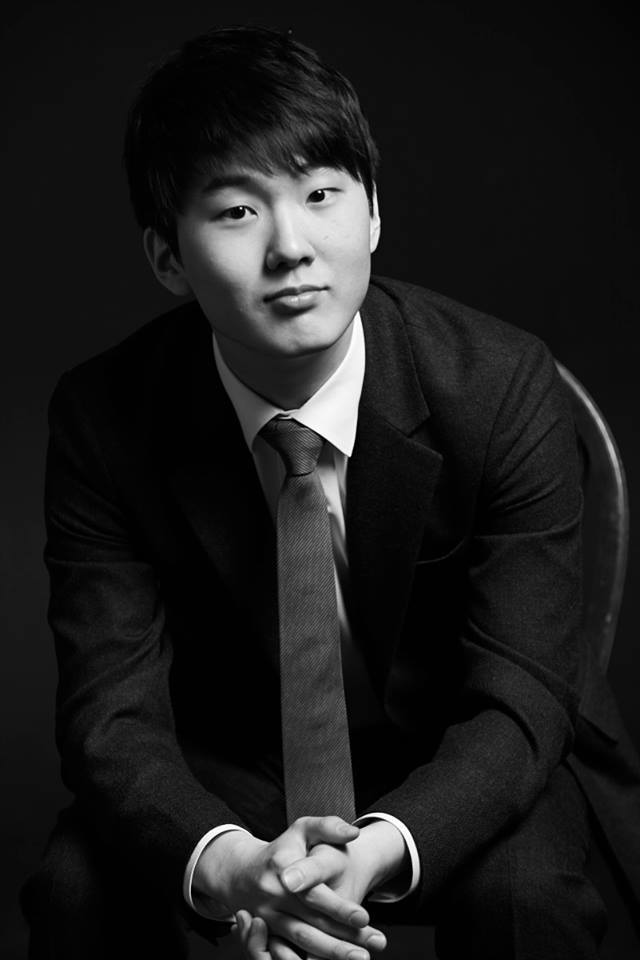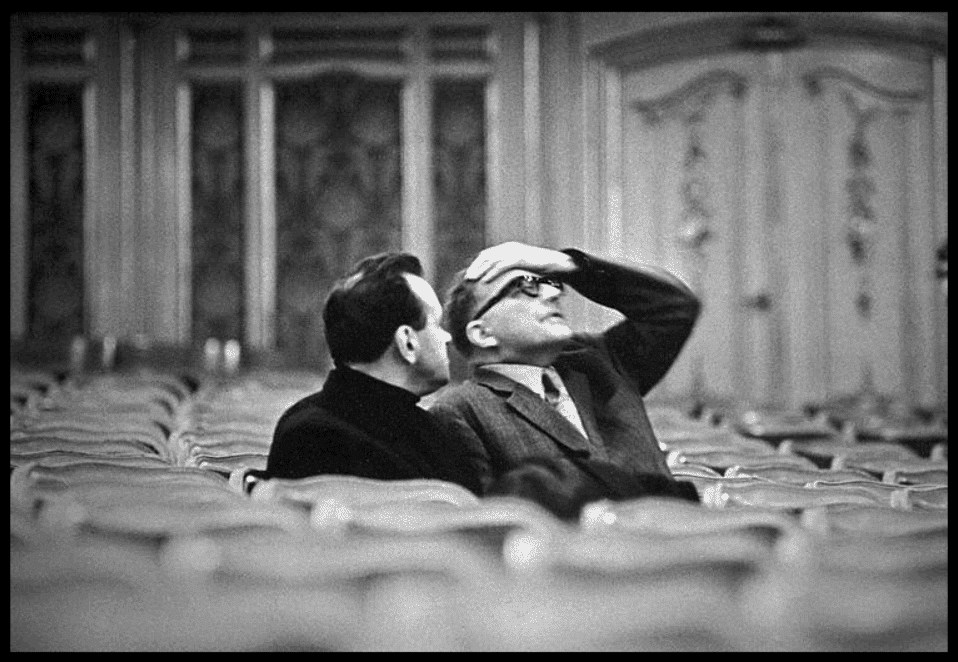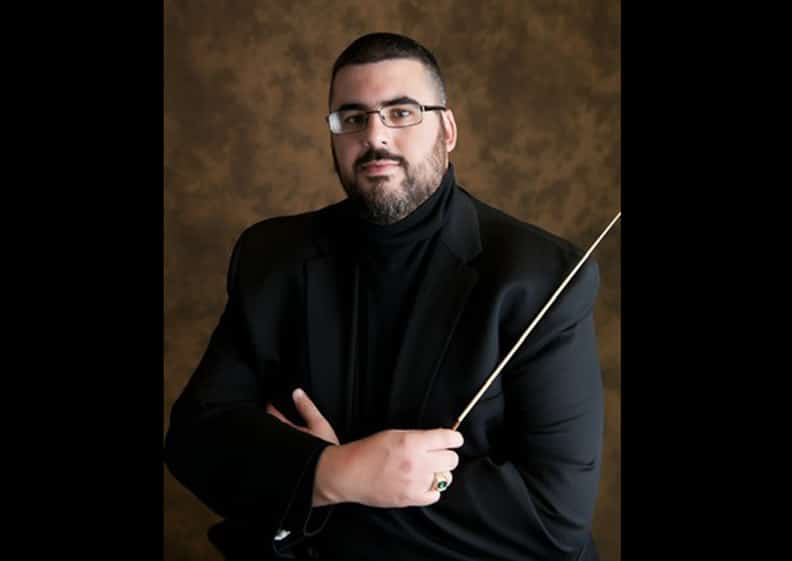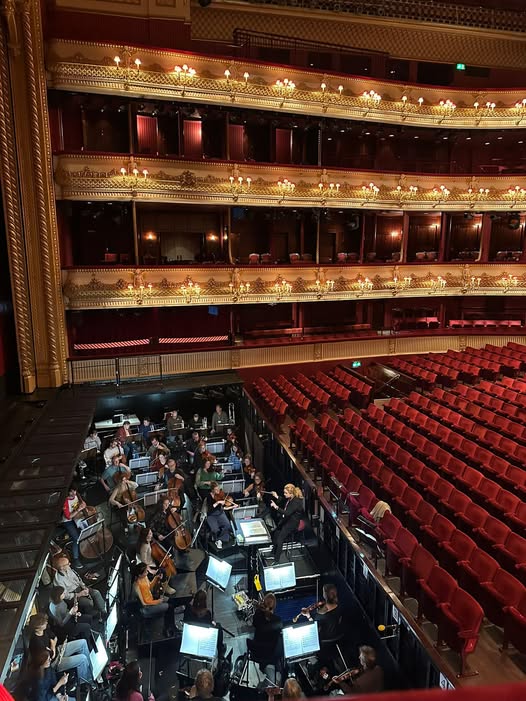Chopin winner takes six sessions over Chopin #1
mainCho Seong-jin, Korean winner of last year’s Chopin Competition in Warsaw, was at Abbey Road last week cutting his studio debut album for DG.
Cho, 21, had six sessions over two days with the LSO and conductor Gianandrea Noseda to record the Chopin E minor concerto. Apparently, he had never entered a recording studio before.
A live recording of his competition performance was issued by DG last November.

UPDATE: The LSO says it was involved in just three of the six sessions.





I am sure it will be just how Chopin envisioned it; microscopically perfect and tame.
This ridiculous “studio perfection” that comes to be expected today goes against the entire conception of these works of art.
I agree with you that a lot of Chopin playing these days is dreadfully anodyne and predictable, if not downright tedious. My antidote for this is to listen to Ignaz Friedman playing Chopin, especially his fabulous (and legendary) Nocturne in E flat op.22 no.2. In my view it has never been bettered.
op. 55 no. 2
Unlikely to be tame with Noseda involved.
The online seller [jpc.de] lists 974 results for recorded media of Chopin’s 1st piano concerto, including all couplings with works of other composers (for example Ingolf Wunder, who recorded the work together with Tchaikovsky’s B flat minor piano concerto). Welcome to insanity, and the endeavour to find a distinguishing feature in this latest effort.
Tame?
In my opinion, hardly appropriate to describe Seong-Jin’s soul and his approach and his music.
He’s very shy and quiet, but people, who have been hearing his music since he was very young, know that there are things very different in somewhere inside him.
I’m so happy to see that he has matured into an artist who can convey his deep passion and unique soul through his music, without showing off or a bold and vulgar interpretation for the sake of making differences.
He never did such things, but his music aroused some kind of eruption in the audiences’ hearts.
http://www.leonardslatkin.com/reviews/2/
Slatkin, Seong-Jin, and the ONL
“I still have no rational understanding of what happened at the very end, but it was one of those moments that marks one’s auditory memory forever.
A collective rapture swept over the stage, inspired by the bond between Seong-Jin Cho and Leonard Slatkin.
The powerful ending in perfect synchronization, touched not only the musicians, but completely moved those in attendance … we all felt as if we had witnessed something extremely grand.”
?Beate Langenbruch, Bachtrack.com (translated from French)
http://www.leonardslatkin.com/may-2016/
At just 22, he had full command of the formerly daunting piece.
It seems as if everyone can play it these days.
Impetuous yet still full of emotion, Cho’s approach was very much that of a young man, but it is very clear that his talent is formidable.
https://bachtrack.com/fr_FR/critique-leonard-slatkin-seong-jin-cho-orchestre-national-lyon-auditorium-avril-2016
Je n’ai toujours pas saisi rationnellement ce qui s’est passe a l’extreme fin, mais c’est l’un de ces moments qui marquent votre memoire auditive pour toujours. Une extase collective s’est emparee du plateau, induite par la complicite entre Seong-Jin Cho et Leonard Slatkin. La montee en puissance finale, en parfaite synchronisation, touche non seulement les musiciens, mais contamine completement la salle. J’en ai encore le frisson pendant au moins 20 secondes ; nous avons tous le sentiment d’avoir assiste a quelque chose d’immensement grand, qui ne reviendra pas de sitot.
( I still do not understand rationally that have happened at the very end, but it’s one of those moments that mark your auditory memory forever.
A collective ecstasy took hold of the plateau induced complicity between Seong-Jin Cho and Leonard Slatkin.
The rise in final power in perfect synchronization, affects not only musicians, but completely contaminating the room.
I still have the thrill for at least 20 seconds; we all have the feeling of having witnessed something immensely large, that will not return anytime soon. )
https://twitter.com/pvgberge
– Pierre Berge
Aix en Pce. Fest Paques. Pas assez de 140 mots pour dire mon emotion apres le 3e cto de Rachmaninov par le Sud
Coreen Seong-Jin Cho.SUBLIME.
( Aix en Provence. Easter Fest. 140 Not enough words to express my feelings after the 3rd Rachmaninoff cto by the South Korean Seong-Jin Cho. SUBLIME. )
https://twitter.com/philippelabro
– Philippe Labro
Au festival d’Aix,ce soir,revelation d’un jeune(21ans)pianiste Coreen,Seong-Jin Cho- grande interpretation du concerto no3 de Rachmaninoff.
( The Festival d’Aix tonight revelation of a young (21 years) pianist Coreen, Seong-Jin Cho great interpretation of the Concerto No. 3 Rachmaninoff. )
http://www.klaviatura.cz/recenze-vitez-chopinovy-souteze-nadchl-prahu-prazske-jaro-oficialne-zacalo/
google translation into English :
https://translate.google.com/translate?sl=auto&tl=en&js=y&prev=_t&hl=ko&ie=UTF-8&u=http%3A%2F%2Fwww.klaviatura.cz%2Frecenze-vitez-chopinovy-souteze-nadchl-prahu-prazske-jaro-oficialne-zacalo%2F&edit-text=
My initial fears of Schubert’s Sonata in C minor D 958 (Allegro, Adagio, Menuetto. Allegro, Allegro) rapidly disappeared, thanks to a stunning first sentence.
The first part, Allegro, Cho took up unusually quickly.
However, even at this speed he showed up fabulously perfect dynamic contrasts and incredibly hard runs in the strictest piano.
The second movement, Adagio lovely, with storybook sound smoothly moved into the third section, where Cho used drama songs and showed, once again, excellent dynamic contrasts.
The fourth sentence can be characterized especially by the excellent articulation and play with pace. A little acting to finish the whole sonata was a welcome act, which became more unconventional concert.
The entire first half of the concert can be characterized by the words bravura technique, incredible contrasts in dynamics and excellent interpretation.
…
Cho introduced the famous and less famous preludes.
In their interpretation is inspired influences pianists such as Martha Argerich herself famous.
During interpretation took advantage of contrasts, offering diverse pace of individual preludes.
However, the most significant was a romantic feeling, gorgeous, clean and resonant tone of Chopin and perfect articulation.
Well done to cope with the rigors of Chopin music, fioriturami in piano.
Even the most utterly he mastered brilliantly and deservedly so he could take a very long standing ovation.
…
Concert as a good habit, but finished only planned tracks.
Posted in particular three, Prague audiences because it was not going to just let go.
The first encore, Schubert’s Moment Musicaux No. 3 is a known composition and Cho very saddle.
Excellent staccato, great contrasts throughout scales and excellent interpretation.
The second encore earned another very long standing ovation.
Cho performed Liszt’s Transcendental Etude no. 10 and the audience appreciated not only brilliant technique, which is on one of the most difficult etudes ever used, but also the creation of tone that makes the often very melodious harmonies created something that everyone will love.
The audience farewell Bach French Suite No.. 5 – Sarabande, lovely piano concluded his visit to the Czech Republic in Prague, leaving only the most positive memories and reactions.
http://www.casopisharmonie.cz/kritiky/seznamte-se-seong-jin-cho.html
google translation into English :
https://translate.google.com/translate?sl=auto&tl=en&js=y&prev=_t&hl=ko&ie=UTF-8&u=http%3A%2F%2Fwww.casopisharmonie.cz%2Fkritiky%2Fseznamte-se-seong-jin-cho.html&edit-text= – See more at: https://slippedisc.com/2016/05/uk-trumpet-wins-prague-spring/#sthash.np0iWphn.dpuf
… from Schubert’s Sonata in C minor D 958 I’m just pleasantly astonished and began to understand why this little boy winner of the Chopin Competition.
Lyrical passages were played with warmth and passion for meaningful rendering of a musical phrase and the last sentence, built on the characteristic and pianist uneasy theme repetovanych tones in dotted rhythm, he sounded extreme pace with such ease and refinement touch, that I thought it was physiologically impossible .
…
That interpreter was also confirmed in the second half of the evening, when “played” with Chopin’s 24 Preludes, Op. 28.
In consequence of the above mentioned specifics of the audience received performance by him, in my opinion, brought a lot of new sound colors, made acrobatic fast-moving fingers with the ability to operate completely relaxed.
Ladies and gentlemen, name Seong-Jin Cho remember.
I have a strong hunch that they are born artist who will be in the world of selling out prestigious concert halls, and we hear it many times.
Right..so you’re some fangirl who knows how to copy and paste.
Have you ever listened to a mazurka played by Rosenthal (student of Liszt and Mikuli – Chopin’s teaching assistant and student)? Or listen to his e minor concerto.
My point was not a hit towards Cho so don’t cry yourself to sleep too much, but towards the idea of “perfection” in music and going into a studio, recording bar by bar and splicing it together and thinking that you produced some great artwork.
Sokolov, arguably the greatest living pianist, refuses to record outside of live performances for this reason.
Obviously this is way above your head so save us all the pain and don’t copy and paste an essay in response.
One suspects the essay is not so much about music as it is about being Korean .
You know how many people here and how often they are disgusted by your comments.
But it seems that you always enjoy it very much and have no intention to stop insulting other people.
Carry on.
What you do is you.
This posting is also related to Seong-Jin and his music and his recording, and I’d love to share what other people are thinking about him and his music so I brought some reviews and tweets.
Then what’s wrong with that?
And do look at the thread.
I didn’t write the comment under yours.
It means that I wasn’t very much interested in what you were saying about and I completely understood your point which was about studio recording rather than Cho.
That’s why I posted my comment separately, but I got the idea about ‘tame’ and my first comment is pretty much like Paul Silverthorne’s.
I’m confirming that my first comment is not a reply or response to yours so don’t bother yourself to write this kind of replies with lots of insults.
Just try to learn how to communicate with other people without insulting them, even if you have different ideas or you misunderstood someone else’s intention and point.
And do not try to belittle someone else ever again!
You are not the only noble classical music fan.
Is 6 a lot?
He may have taken 6 sessions to record the concerto, but that does not mean it was a cut and paste job (though it may have been). If this was really his first time in the recording studio, he might have had some nerves about committing this concerto to disc, resulting in less that acceptable (to him) performances of it. They could have used full movements from different takes joined together to form the concerto .. or simply have recorded it 6 times and let him choose which total performance he liked best. Without knowing exactly what transpired at these sessions, it’s kind of snarky to criticize.
I heard that, years ago, one rather famous pianist recorded the Liszt sonata 19 times and, at the end, decided that his first (or at least an early) take was the one he liked best and that complete take was the one issued on CD. While that may be apocryphal, perhaps there was truth to that story.
There is the insightful story- the great Artur Rodzinski and famous pianist recording
equally famous piano concerto, after each take and mistakes by pianist the voice
over from engineer booth saying “it’s ok we can fix that ” and so on it went to
dismay of Rodzinski, finally done, the pianist and conductor hear playback with corrected
mistakes, and it is indeed an impressive performance.
The pianist is more than pleased exclaiming how wonderful and Rodzinski agreeing
with added comment to pianist “yes it is wonderful ,don’t you wish you could play
like that ? “
I am especially partial to Klemperer’s comment to his daughter after Suvi Raj Grubb explained the wonders of editing to him: “Lotte, ein Schwindel”. Sums it up nicely.
Great story.
Mark, I understand your point and I agree with you.
Well, I can’t really say that I prefer only live recordings and detest every studio recording, because I think I have got lots of favourite albums recorded in studio.
But I do understand the differences between live and studio recordings.
However, even when making live recordings, it’s very common to record the same piece several times.
Later, they choose the best movements, passages, parts and then cut and paste.
In this case, we can’t really expect what we usually expect when listening to a live performance in the concert hall.
Anyway, I also think recordings are not the best way to listen to music, but we can’t always go to concert halls whenever we want to hear music, so I’d say that recordings (whether they are made live or in studio) are the next best things to enjoy music.
Seong-Jin’s first album was recorded live directly at the Chopin competition.
Maybe DG’s sound engineer did some job to produce it as it is a common process, but I don’t think he did much work on the video (including audio) posted on YouTube by Chopin Institute.
If anyone wants to enjoy a ‘real’ live recording, just go to YouTube and enjoy it.
It’s a real live recording recorded only once and with no cut-and-paste editing, and it’s free.
Actually, there are a lot more real live recordings of Seong-Jin on the web (like a radio website and YouTube).
Grieg, Tchaikovsky, Liszt, Beethoven, Mozart, Debussy, etc. etc…
And anyway, it says ” The LSO says it was involved in just three of the six sessions. ”
Just to be more precise.
Seong-Jin took 3 sessions. Who said it took 6 sessions?
Strange to read negative comments and opinions about a studio rec which has not even been released.
Korean reports say six sessions over two days. There may have been 3 sessions in which the LSO was not involved.